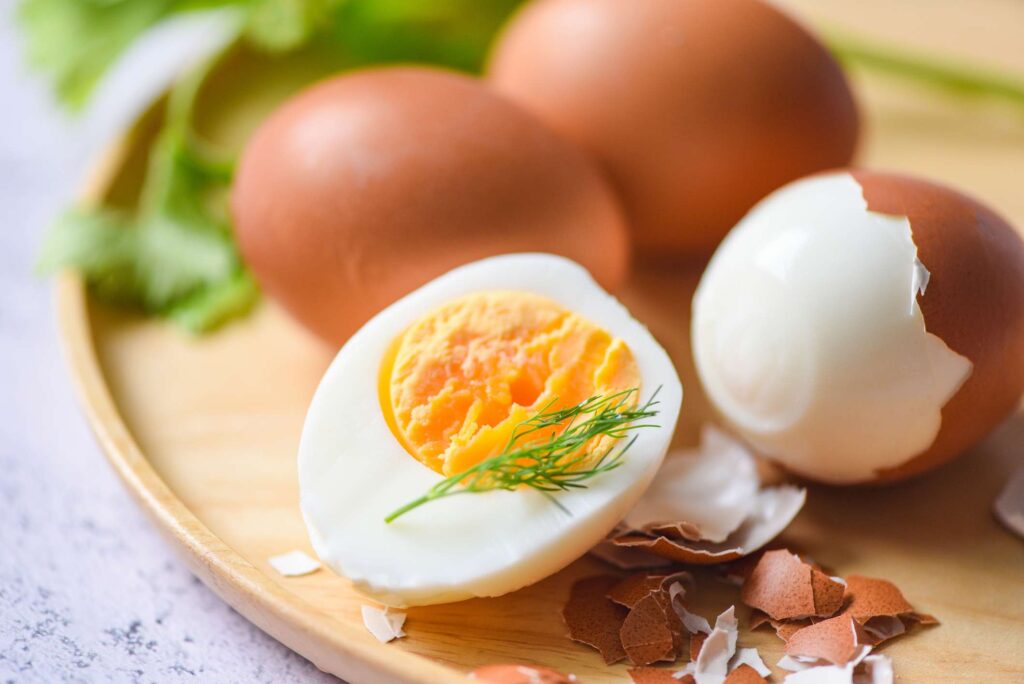Eggs are a nutrient-dense, convenient source of protein. One large egg provides about 6 grams of high-quality protein, found in both the white and the yolk.
On average, there are 5-8 grams of protein in an egg, depending on its size. Here’s how much protein you’ll find in different sizes of eggs:
- Small: 5 grams (g) protein
- Medium: 6 g protein
- Large: 6 g protein
- Extra large: 7 g protein
- Jumbo: 8 g protein
Eggs are a complete source of protein. This means they offer all nine essential amino acids your body cannot produce on its own and needs to get through diet. This high-quality protein is important for:
- Bone health
- Muscle health
- Immune health
- Vision health
- Skin and hair health
- Hormone production
Whole eggs have two parts: the white and the yolk. Both have protein, but in different amounts. They also give your body different nutrients. Here’s how they compare.
Egg Yolk
A large egg yolk has about 2.7 grams of protein. It has slightly less protein than egg white but gives more nutrients, like vitamins A, D, E, and K, plus several B vitamins. The egg yolk also provides healthy fats, iron, zinc, and choline, an important nutrient for brain health.
Egg White
Egg whites have more protein than the yolk, with about 3.6 grams per large egg white. They’re also low in calories and nearly fat-free, making them a good option if you want to boost your protein without adding many calories. Egg whites are also a source of vitamin B5 (pantothenic acid).
Whether you eat them boiled as a snack or scrambled for breakfast, eggs are a convenient way to boost your protein intake.
Research shows that eggs can help increase fullness, reduce body fat, and support muscle growth. In one 2020 study, participants who ate eggs for breakfast consumed fewer calories later in the day.
In another 2020 study, people who ate two eggs most days of the week maintained higher vitamin D levels compared to those who ate cereal. This is important because many people don’t get enough vitamin D, a nutrient that supports bone health and immunity.
Here are some tips on how to use eggs to boost the protein content of your meals:
- Pair scrambled eggs or an omelet for breakfast with a whole-grain muffin
- Add half a cup of cottage cheese to two scrambled eggs for a total of 23 grams of protein
- Slice a boiled egg onto your salad
- Keep hard-boiled eggs in the fridge for an easy, portable snack
- Add egg whites to baked oatmeal to boost protein
- Make egg bites or mini frittatas ahead of time for busy days


